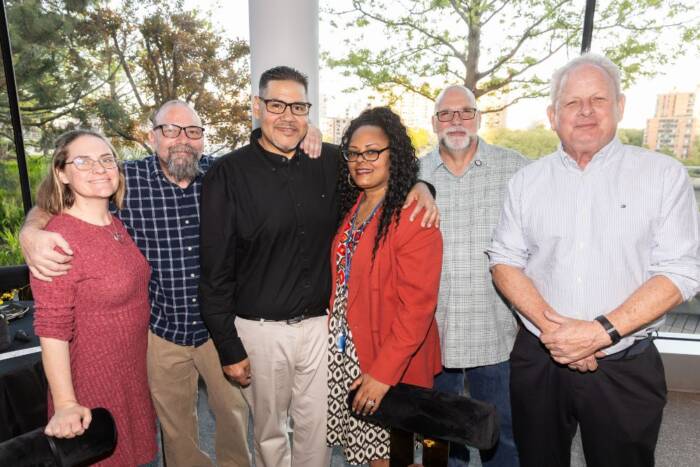Rockefeller Researcher Jan Breslow Receives Bristol-Myers Squibb Award For Distinguished Achievement In Cardiovascular Research

Jan Breslow , M.D.
Jan Breslow, M.D., head of the Laboratory of Biochemical Genetics and Metabolism at The Rockefeller University, has been selected to receive the 2000 Bristol-Myers Squibb Award for Distinguished Achievement in Cardiovascular Research. Breslow is one of seven researchers in various medical research fields to receive the award in 2000.
He will receive a silver medallion and a $50,000 cash award at a dinner held at the Pierre Hotel in New York City on Wednesday, May 10, 2000. The dinner, which will be attended by the award-winners, their friends and colleagues, and members of the selection committee, will begin at 7:30 p.m. and be preceded by a reception at 6:45 p.m.
The award-selection committee said Breslow was selected “in recognition of his pioneering studies on apolipoproteins and their role in lipid metabolism and atherosclerosis susceptibility.” Apolipoproteins carry cholesterol in the bloodstream and thus have an effect on the buildup of plaque that is the hallmark of atherosclerosis.
According to the committee, Breslow’s study of the variations in a particular apolipoprotein gene, apoE, “provided the foundation for understanding how these variations alter the susceptibility to coronary heart disease, Alzheimer’s disease and human aging.” The committee is made up of nine principal investigators at leading research institutions currently receiving unrestricted grants from Bristol-Myers Squibb Company.
Breslow focuses on genetic factors that control a person’s susceptibility to atherosclerosis. He was the first scientist to use recombinant DNA technology to study the disease, revealing that certain genes can predispose a person to the condition or protect against its developments despite controlling such environmental factors as diet, exercise and smoking.
Breslow’s laboratory played an important role in isolating genes responsible for making apolipoproteins. Through genetic manipulation, the lab produced a mouse that lacked one of these genes, the apoE knockout mouse. This was the first good small animal model of atherosclerosis, and it showed that a single genetic alteration was sufficient to convert the mouse from an animal that resisted atherosclerosis to one that developed it. Within a few years, the mouse became the major experimental model for studying the disease.
 “Dr. Breslow’s scientific research has had an enormous impact on our understanding of plasma lipoproteins and their relation to atherosclerosis,” said Richard Gregg, M.D., vice president, Metabolic and Cardiovascular Drug Discovery, Bristol-Myers Squibb Pharmaceutical Research Institute. “He appreciated very early on the potential of molecular biology and transgenic approaches, and his development of the homozygous apoE-deficient mouse was a milestone in understanding the causes of atherosclerosis and has provided the field with an extremely important research tool. We are very proud to honor him with this award.”
“Dr. Breslow’s scientific research has had an enormous impact on our understanding of plasma lipoproteins and their relation to atherosclerosis,” said Richard Gregg, M.D., vice president, Metabolic and Cardiovascular Drug Discovery, Bristol-Myers Squibb Pharmaceutical Research Institute. “He appreciated very early on the potential of molecular biology and transgenic approaches, and his development of the homozygous apoE-deficient mouse was a milestone in understanding the causes of atherosclerosis and has provided the field with an extremely important research tool. We are very proud to honor him with this award.”
Initiated in 1977, the Bristol-Myers Squibb Unrestricted Biomedical Research Grants Program currently provides no-strings-attached funding in seven medical research areas. The distinguished achievement award of $50,000 is awarded annually to one researcher in each of the seven categories.
Bristol-Myers Squibb is a diversified, research-based health and personal care company whose principal businesses are pharmaceuticals, consumer products, nutritionals and medical devices. The company also is a leader in consumer medicines, orthopedic devices, ostomy care, wound management, nutritional supplements, infant formulas, and hair and skin care products.


